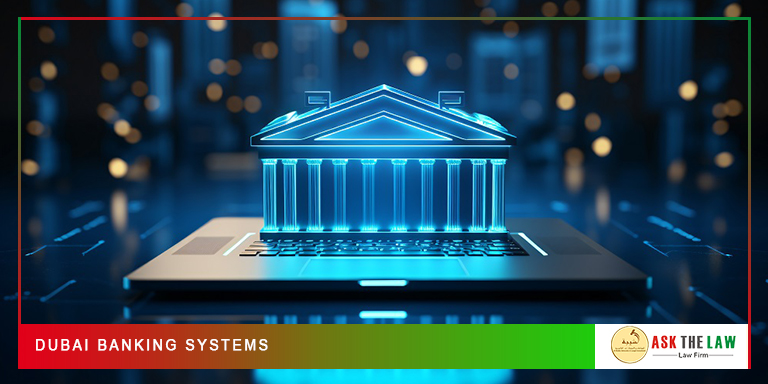
Dubai Banking Systems: Developments and Advancements
The banking system is important in every country because it is the only thing that runs business operations smoothly worldwide. Understanding the digital banking system is difficult, but with so many options in the banking environment, digital payments have put companies at ease. They can make payments online safely and securely. We will discuss the Dubai banking systems, its developments, and advancements.
Dubai’s Banking System
Among the seven emirates, Emirate of Dubai has championed being the first global financial hub from the United Arab Emirates. Expatriates and investors find lucrative opportunities in Emirate of Dubai, where daily financial transactions happen. Making itself a global hub, Dubai has evolved its financial laws to ensure smooth business operations across UAE. Our banking lawyers, also represent the clients in banking and financial cases. You can also take the legal advice and legal support.
New Developments in the UAE Banking System
Recent developments in Dubai’s financial sector promote transparency and innovation with technological advancements in payments and other financial transactions. However, the new laws ensure safety for consumers by providing an accessible banking system. Dubai is backed by the latest technology in the world.
What Has Changed in Dubai Banking Laws?
Recently, Dubai has witnessed several changes in its banking system. The new laws have addressed issues related to cyber threats and meeting the requirements of consumers. Dubai has developed better banking laws, let’s have a look:
- Digital Banking Rules
As the world moves towards fintech, Dubai has also stepped forward to regulate digital banking for its consumers. Digital payment systems have uplifted consumers’ confidence and protected users’ data.
- Rules for Anti-Money Laundering
Relevant authorities now monitor the banks to ensure anti-money laundering policies in Dubai. Any suspicious transaction to the bank will be investigated thoroughly to eradicate financial crimes in the UAE.
- Consumer Protection by Banks
The UAE government has emphasized transparency throughout financial transactions in recent banking laws. Banks must now ensure clear mention of their terms and conditions in loan agreements and interest rates.
- Initiatives for Climate Change
In the UAE, green financing initiatives are taken, especially in Dubai. These initiatives get leverage for financing options to enhance sustainability and regulate environmentally friendly banking practices. However, the UAE believes in achieving zero carbon emissions by 2050 through these initiatives.
Scams conducted under Digital Banking System
Scammers often call customers. Revealing sensitive information such as your identity or card number could be risky. Therefore, banks inform their customers about new scams and tell them how to avoid them. Sometimes, scammers use social media to obtain private information. However, sharing bank details online is not recommended, especially when shopping online.
Best Way to Stay Away from Scams
Always try talking to strangers on the phone, especially when they ask for your bank details. Also, you must verify the loan schemes directly from the banks. Do not trust random numbers or numbers similar to those of the bank. If you have any complaints, the banks have helplines where you can file a complaint about the scam. Talk to your bank to find out how you can avoid fraudulent cases. Let’s find out “Key Features of the New Banking Laws in Dubai”.
- Regulations of Fintech and Digital Banking
The new banking laws in the UAE encourage the fintech and digital banking systems to move with the international financial market. However, under these laws, lawyers in Dubai explain how to license a bank, maintain cybersecurity standards, and make fintech firms operational.
- Privacy of Data
Nowadays, protecting your data online is difficult, especially in the digital banking system. Therefore, the new banking reforms ensure that every individual’s privacy is maintained online, and people should be warned not to share sensitive information with anyone else. For example, a one-time password (OTP) during the transaction shall not be shared with anyone. Our lawyers in Dubai can provide good knowledge about Data Privacy in UAE.
- Encountering Challenges of Money Laundering
The banking system will become stricter with its monitoring system. A regular audit will ensure that every bank in the UAE implements anti-money laundering (AML) policies. Moreover, the staff will be given financial literacy training for more exposure.
- Consumer Protection in the Finance Sector
The UAE Central Bank ensures that every agreement drafted by the bank for loans or leases has clear terms and conditions for transparency. The consumer must be properly communicated, whether it is about loans or interest rates. There shall be a mechanism to resolve disputes that consumers may bring to the banking staff.
- Environmentally Friendly Initiatives
Companies making positive contributions to climate change allow UAE banks to invest in sustainable projects through green bonds and other environmentally friendly initiatives. Our legal consultants in Dubai on the environment explain climate effects for the clients.
Effects on Banks and Financial Institutions in the UAE
The recent developments in the banking laws have made significant changes to the financial institutions in Dubai:
- Strict Rules for AML and Cybersecurity
The UAE Central Bank has asked all other banks to comply with the new banking laws, such as closely overseeing financial transactions and training staff to manage the latest challenges they may encounter.
- Cutting-Edge Solutions
With the advancement in the digital banking system, banks are offering more creative and innovative financial services to their consumers. Besides banks, financial institutions are also trying to compete in fintech.
- Transparent Banking Operations
Every bank in the UAE ensures transparency in the banking system. The individuals have the right to fully understand whether the agreement is related to loans, leases, or interest rates. The bank staff shall guide the clients about those agreements, as it develops a relationship of trust between the bank and the consumers.
Advantages of New UAE Banking Laws to Consumers
The new banking laws in the UAE show innovation and transparency in Dubai’s financial sector. Let’s take a look at the advantages of the new banking laws that consumers can enjoy:
- Security of Data
The introduction of data protection laws secures consumers’ financial information. There will be fewer cyber threats because consumers are warned about not sharing sensitive information with others.
- Transparency in Agreements
If you are told about various options in the banking system, such as getting a credit card or loan for a car or a house, the agreement will have clear terms and conditions. If the individual does not understand any clause in the agreement, the bank staff must guide them so the person can make an informed decision.
- Easy Payment Methods
The digital banking system is accessible to everyone and helps them make quick and easy payments. The user-friendly interface of the banking apps ensures the bank’s credibility. Our IT lawyers in Dubai know very well about modern payment gateways and methods.
- Extensive Options for Financing Products
People working for positive environmental change can access digital products such as eco-loans that encourage investment in sustainable projects in the UAE.
Responsibilities of the UAE Central Bank
The UAE Central Bank oversees all the UAE banks, ensuring that none of the banking laws are violated in any financial institution. The UAE Central Bank handles several responsibilities:
- Introducing Laws and Reforms
The UAE Central Bank strategizes the banking system and introduces new laws in the financial sector to evolve within the international market. The rules relate to consumer protection, bank licenses, and strict anti-money laundering policies.
- Conducting Regular Audits
The banks prepare their audit reports yearly. However, the UAE Central Bank must ensure that all banks operate according to the banking laws. Therefore, it conducts a separate audit for every bank in the UAE. This ensures operational standards in the banking environment.
- Encouraging Innovation
Introduced digital banking in the UAE fosters innovation in the banking environment. Consumers will be more attracted to opportunities that make their finances secure.
- Global Collaborations
The UAE Central Bank’s biggest responsibility is to partner with financial institutions to promote their new ideas and strengthen the banking system. These new collaborations will lead to global connectivity, making the UAE a good financial hub.
- Problems with New Banking Laws in Dubai
There are certain challenges that the banks may have with the new banking laws in the UAE:
- Investment in Technology
The new banking system involves digital technology, which only some banks, especially small banks, can afford. Therefore, staff training is also mandatory, and having limited knowledge about the digital financial system could be challenging for some to understand.
- Cybersecurity Threats
Banks must be more vigilant and inform their clients about avoiding cybersecurity threats and scams to protect their data.
- Familiarizing with Change
Some individuals may adapt to the changes slowly. They will take time to understand the banking system. On the other hand, consumers might also need help understanding the new banking system.
Are the Recent Developments in the UAE Banking System Good?
The changes in Dubai’s banking laws demonstrate financial stability and innovation in fintech. People will indeed take time to adapt to the changes, but those changes will also strengthen the banking system by providing regular updates on AML—a major concern for UAE banks. Consequently, the new banking system offers transparency in loan agreements, lease agreements, and interest rates.
Will the New Banking System Achieve Sustainable Goals?
The UAE banks are offering eco-loans and other types of loans under green loans. These loans are provided to companies and startups working on sustainable goals for 2050, such as zero carbon emissions. In the future, Dubai’s banking system will become a major contributor to climate change, adding more to the world’s sustainable goals.


